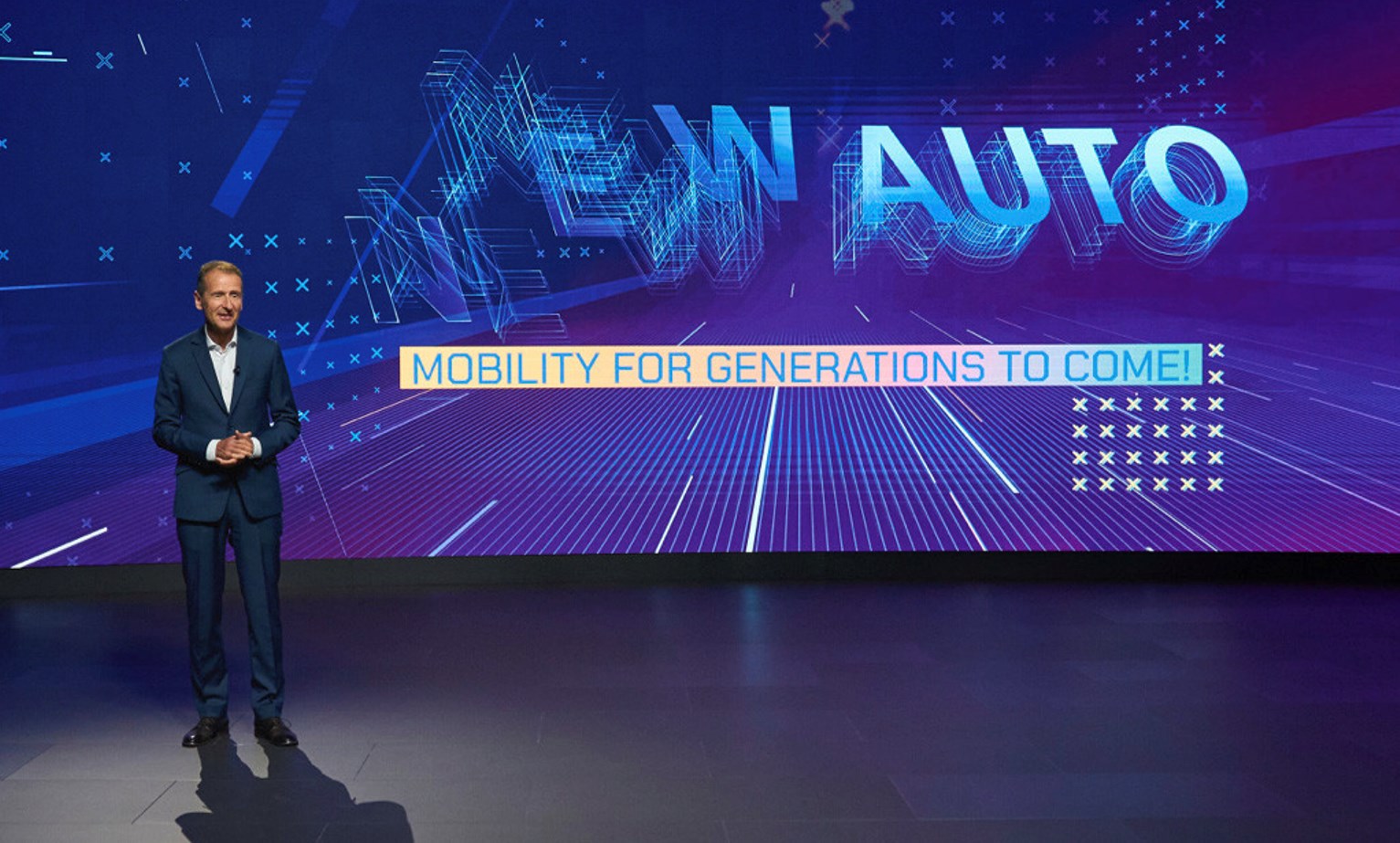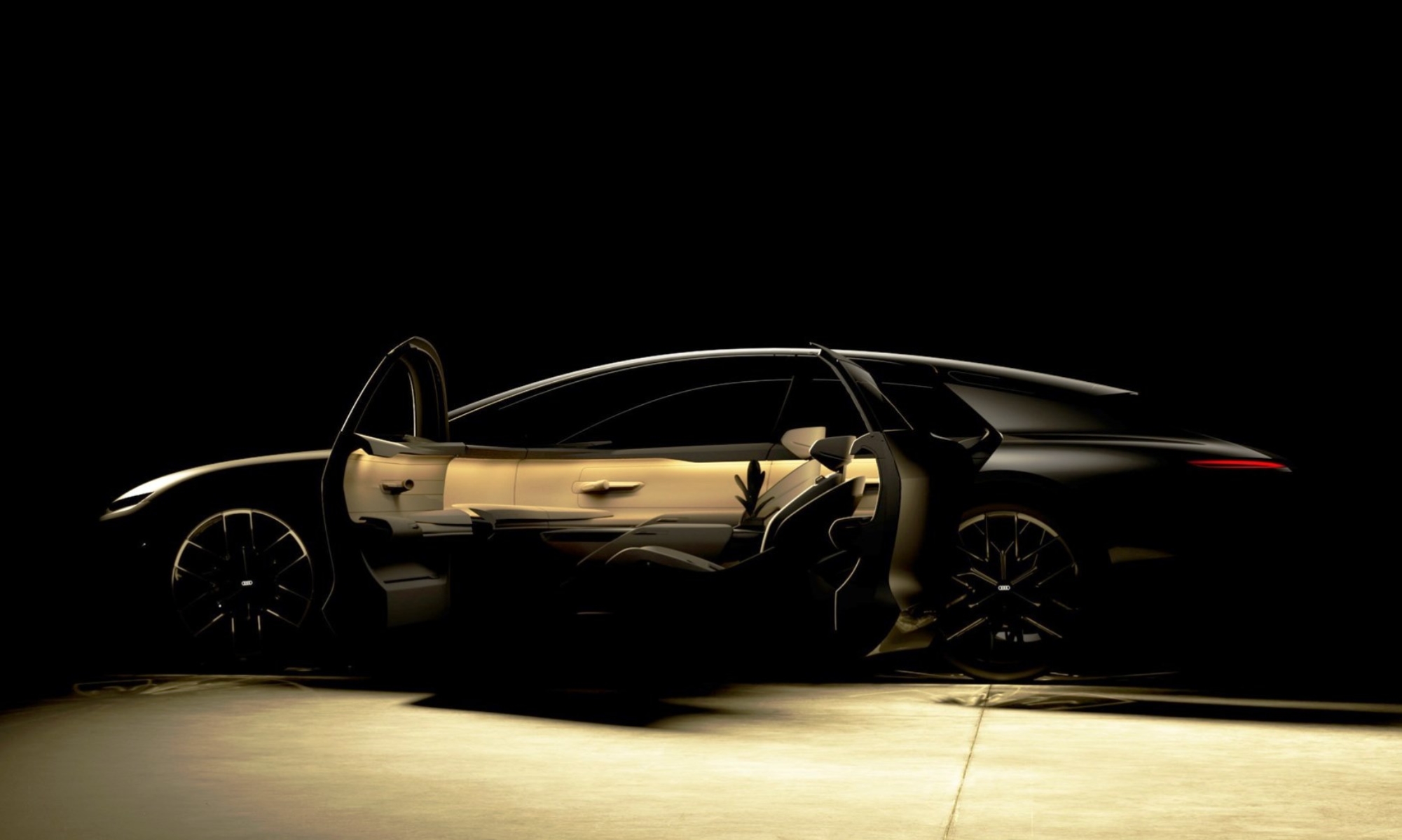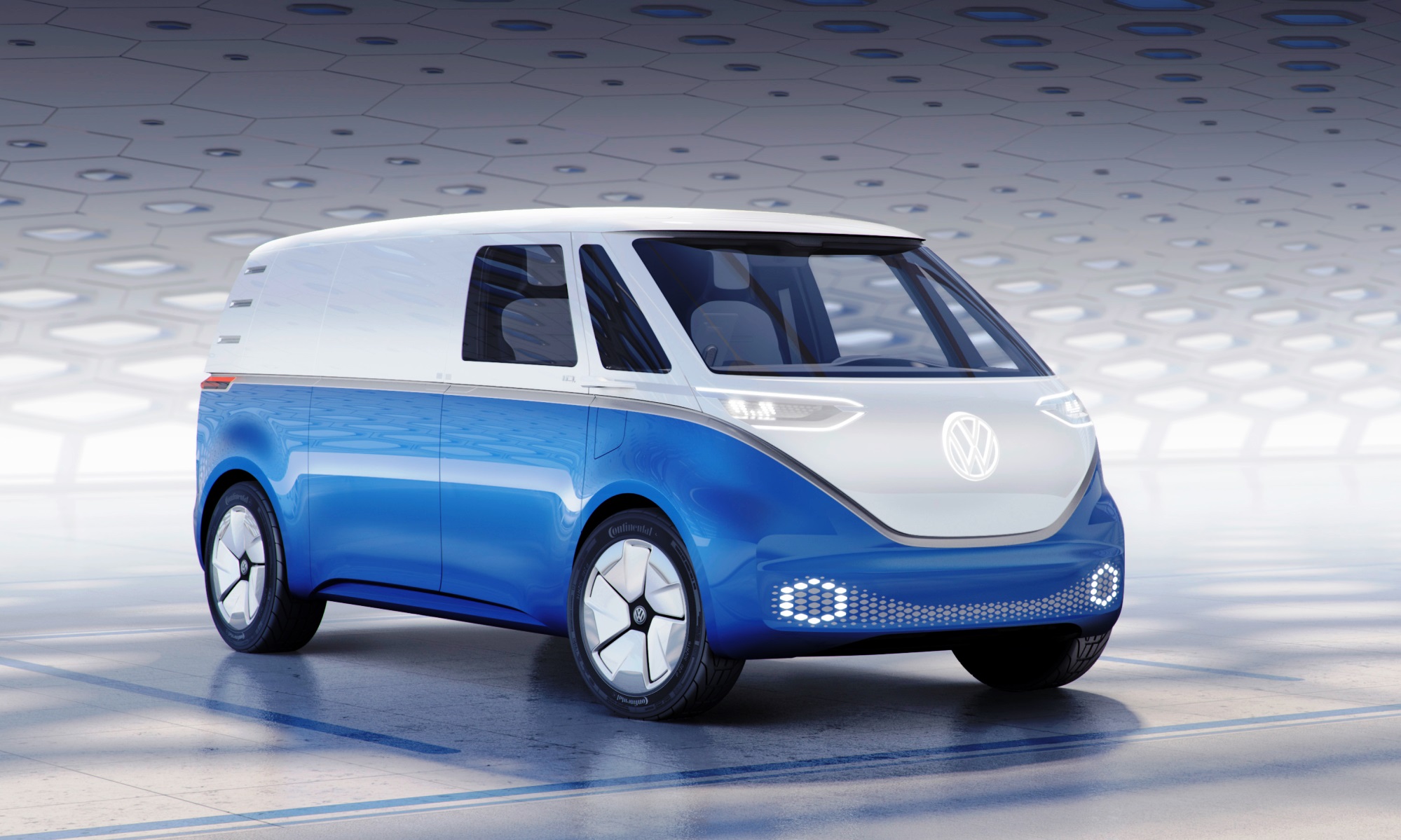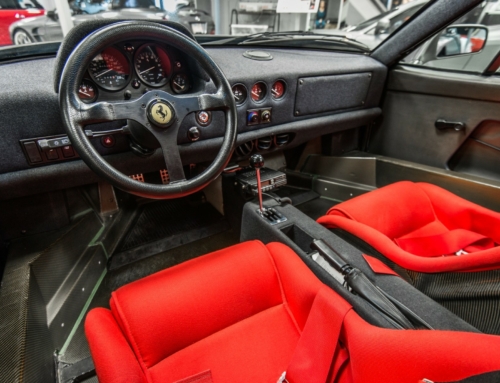The future is CO₂-neutral and software-driven, that is the underlying message from a press conference held by the VW Group earlier today. Under the ‘New Auto’ banner the German auto giant has unveiled a massive undertaking that will change the company in the new age of motoring.
“We set ourselves a strategic target to become global market leader in electric vehicles – and we are well on track. Now we are setting new parameters,” said CEO Herbert Diess during the presentation of New Auto, the Group’s strategy through 2030. “Based on software, the next much more radical change is the transition towards much safer, smarter and finally autonomous cars. That means for us: technology, speed and scale will matter more than today. The future of cars will be bright!”
Follow Double Apex on Facebook and Instagram, where we share more car content.
Clear timeline
Internal combustion engine (ICE) vehicles are estimated to decline by 20 per cent in the next 10 years and battery electric vehicles (BEVs) will soon make up 50 per cent of all new vehicles sold. VW is therefore repositioning itself to take advantage of this seismic shift within the automotive sphere.
This large-scale change within the auto industry has come about due to increasing pressure from the environmental lobby. Cars have long been the (easy) target in the fight against reducing CO₂ emissions (though it certainly isn’t the largest contributor to this greenhouse gas). Along with sustainability it is the changing face of mobility compared to a few decades ago.
Read up about VW SA’s electric car plans here.
By 2030, the VW Group plans to reduce its carbon footprint per car by 30 per cent over its lifecycle (vs. 2018), in line with the Paris Agreement. In the same timeframe, the share of battery‐electric vehicles is expected to rise to 50 per cent, while in 2040, nearly all new VW Group vehicles in major markets should be zero‐emission. By 2050 at the latest, the VW Group intends to operate fully climate neutral.
Multi-pronged
New Auto is a multi-pronged approach with a several benefits for the brand going forward. Areas of focus include scalable technology platforms, investing in large-scale battery production, increased charging networks and new service offerings, ie software for the increasing digitisation of the future automobile and mobility. Volkswagen has already earmarked €73 billion for future technologies from 2021 through 2025, representing 50 per cent of total investments, with even more planned for the future.
“We intend to install industry leading platforms across strong brands, to be able to have more scale and capture even more synergies in the future”, CFO Arno Antlitz said. “We will scale our BEV-platforms, we want to develop a leading automotive software stack. And we will continue to invest in autonomous driving and mobility services. During this transition, our robust ICE business will help to generate the profits and cash flows to do so.”
Check out the standard spec of the upcoming Golf GTI by clicking here.
SSP open to all
From a product perspective the most interesting development is the Scalable Systems Platform (SSP) that will underpin more than 40 million vehicles over its lifetime. The platform will be used for all the brands within the group and be open for other automakers to use as well. In his speech earlier Diess said that SSP: will be 100 per cent electric and ready for autonomous driving, available for all models and brands, allowing to address all segments and allow for excellent differentiation for our brands in every (vehicle) from 85 kW to 850 kW new BEVs.
We certainly like the sound of the 850 kW new vehicle. VW will invest around €800 million into the R&D of the core of the SSP platform and its modules. The SSP will debut with Audi’s Project Artemis, a new luxury car that will be unveiled in 2025.
Read our VW T-Roc driving review at this link.
Software to control it
Of course, the reality is that BEVs require a higher degree of software integration than ICEs and VW’s own software company Cariad is busy developing the next level of software for introduction in 2023, and the one that will follow for use on the SSP in 2025. The end goal is a software stack called E³ 2.0 that will include a unified operating system for vehicles from all VW Group brands.
E³ 2.0 will feature level 4 autonomous driving readiness, meaning that customers can hand over steering fully to the car. With a massive pool of incoming real-time data through always-connected, automated driving, the vehicles can be continuously updated with new features and services tailored to customers’ needs.
Batteries and charging
BEVs need electricity and in this regard VW Group is both investing heavily and taking more control. VW’s proposed Closed Loop system takes care of all aspects of the battery lifecycle, currently a contentious point for some, from battery production, including repair and recycling. Six giga factories in Europe with a total production capacity of 240 GWh by 2030 will help to secure battery supply.
Key to this new plan is the “unified cell” which will form the basis of all battery packs across VW Group products. This will help to reduce complexity, costs and, ideally, makes the system more eco-friendly. VW proposes a second-use life for batteries as home energy storage once they are no longer viable for BEV use. The company is also expanding its extensive charging infrastructure with strong partners in the US, Europe and China. With these partners the network will grow, in some parts, to double the current size within a few years.
VW’s New Auto plan also envisions using upcoming BEVs as mobile, intelligent power banks to store energy from sustainable sources that don’t have large storage reserves at the moment. Eg electricity generated by the sun or windmills can be fed from the grid directly into cars’ battery packs.
Software systems and autonomous driving
VW Group is aiming to own a fleet of autonomous shuttles in Germany within the decade. The basis of this fleet will be the multi-configurable ID Buzz; the modern-day equivalent of the famous VW Kombi. The fleet will offer several usage options that include deliveries with automated driving capabilities, car rental and subscription to car sharing and ride hailing.
VW estimates that by 2030, the total market for mobility as a service, rather than outright vehicle ownership, in the five biggest European markets will amount to $70 billion. Similar autonomous driving projects will be rolled out in China and the USA once the trials in Germany have proved successful.
Christian Dahlheim, head of group sales, added: “The Volkswagen Group aspires to achieve a strong competitive edge in the field of mobility solutions. We will be able to offer services directly to our customers or cooperate with strong partners, depending on the specific situation in each market. One vehicle fleet for all services will enable us to operate very efficiently. Furthermore, our upcoming mobility platform will integrate all mobility offerings from the Group and our brands and thus maximise customer convenience.”
Summary
The VW Group can be seen as a large ship that carries many brands and employs 660 000 staff worldwide. Those at the top have realised that they need to change direction to maintain some form of relevance within the changing landscape and to do so with a level of financial success. The New Auto plan seems bold, but there is a clear path to achieving its new objectives.





![[UPDATED] Mazzei Formula Five Is One Man’s Obsession](https://doubleapex.co.za/wp-content/uploads/2024/08/Mazzei-Formula-Five-500x383.jpg)
![Ferrari Amalfi Introduced as Roma’s Replacement [w/video]](https://doubleapex.co.za/wp-content/uploads/2025/07/Ferrari-Amalfi-500x383.webp)
![Koenigsegg Sadair’s Spear is a Limited-Edition Track Weapon [w/video]](https://doubleapex.co.za/wp-content/uploads/2025/07/Koenigsegg-Sadairs-Spear-rear-500x383.webp)
Leave A Comment